Text
How to learn a language when you don’t know where to start:
General Plan:
Weeks 1 and 2:
Purpose:
Learn the fundamentals sentence construction
Learn how to spell and count
Start building a phrase stockpile with basic greetings
The Alphabet
Numbers 1 - 100
Subject Pronouns
Common Greetings
Conjugate the Two Most Important Verbs: to be and to have
Basic Definite and Indefinite Articles
Weeks 3 and 4:
Purpose:
Learn essential vocabulary for the day-to-day
Start conjugating regular verbs
Days of the Week and Months of the Year
How to tell the time
How to talk about the weather
Family Vocabulary
Present Tense Conjugations Verbs
Weeks 5 and 6:
Purpose:
Warm up with the last of the day-to-day vocabulary
Add more complex types of sentences to your grammar
Colours
House vocabulary
How to ask questions
Present Tense Conjugations Verbs
Forming negatives
Weeks 7 and 8:
Purpose:
Learn how to navigate basic situations in a region of your target language country
Finish memorising regular conjugation rules
Food Vocabulary and Ordering at Restaurants
Money and Shopping Phrases
Present Tense Conjugations Verbs
Weeks 9 and 10:
Purpose:
Start constructing descriptive and more complex sentences
Adjectives
Reflective verbs
Places vocabulary
Weeks 11 and 12:
Purpose:
Add more complex descriptions to your sentences with adverbs
Wrap up vocabulary essentials
Adverbs
Parts of the body and medical vocabulary
Tips for Learning a Foreign Language:
Learning Vocabulary:
What vocabulary should I be learning?
There are hundreds of thousands of words in every language, and the large majority of them won’t be immediately relevant to you when you’re starting out.Typically, the most frequent 3000 words make up 90% of the language that a native speaker uses on any given day. Instead try to learn the most useful words in a language, and then expand outwards from there according to your needs and interests.
Choose the words you want/need to learn.
Relate them to what you already know.
Review them until they’ve reached your long-term memory.
Record them so learning is never lost.
Use them in meaningful human conversation and communication.
How should I record the vocabulary?
Learners need to see and/or hear a new word of phrase 6 to 17 times before they really know a piece of vocabulary.
Keep a careful record of new vocabulary.
Record the vocabulary in a way that is helpful to you and will ensure that you will practice the vocabulary, e.g. flashcards.
Vocabulary should be organised so that words are easier to find, e.g. alphabetically or according to topic.
Ideally when noting vocabulary you should write down not only the meaning, but the grammatical class, and example in a sentence, and where needed information about structure.
How should I practice using the vocabulary?
Look, Say, Cover, Write and Check - Use this method for learning and remembering vocabulary. This method is really good for learning spellings.
Make flashcards. Write the vocabulary on the front with the definition and examples on the back.
Draw mind maps or make visual representations of the new vocabulary groups.
Stick labels or post it notes on corresponding objects, e.g when learning kitchen vocabulary you could label items in your house.
How often should I be practising vocabulary?
A valuable technique is ‘the principle of expanding rehearsal’. This means reviewing vocabulary shortly after first learning them then at increasingly longer intervals.
Ideally, words should be reviewed:
5-10 minutes later
24 hours later
One week later
1-2 months later
6 months later
Knowing a vocabulary item well enough to use it productively means knowing:
Its written and spoken forms (spelling and pronunciation).
Its grammatical category and other grammatical information
Related words and word families, e.g. adjective, adverb, verb, noun.
Common collocations (Words that often come before or after it).
Receptive Skills: Listening and Reading
Reading is probably one of the most effective ways of building vocabulary knowledge.
Listening is also important because it occupies a big chunk of the time we spend communicating.
Tips for reading in a foreign language:
Start basic and small. Children’s books are great practice for beginners. Don’t try to dive into a novel or newspaper too early, since it can be discouraging and time consuming if you have to look up every other word.
Read things you’ve already read in your native language. The fact that you at least know the gist of the story will help you to pick up context clues, learn new vocabulary and grammatical constructions.
Read books with their accompanying audio books. Reading a book while listening to the accompanying audio will improve your “ear training”. It will also help you to learn the pronunciation of words.
Tips for listening in a foreign language:
Watch films in your target language.
Read a book while also listening along to the audio book version.
Listen to the radio in your target language.
Watch videos online in your target language.
Activities to do to show that you’ve understood what you’ve been listening to:
Try drawing a picture of what was said.
Ask yourself some questions about it and try to answer them.
Provide a summary of what was said.
Suggest what might come next in the “story.”
Translate what was said into another language.
“Talk back” to the speaker to engage in imaginary conversation.
Productive Skills: Speaking and Writing
Tips for speaking in a foreign language:
If you can, try to speak the language every day either out loud to yourself or chat to another native speaker whether it is a colleague, a friend, a tutor or a language exchange partner.
Write a list of topics and think about what you could say about each one. First you could write out your thoughts and then read them out loud. Look up the words you don’t know. You could also come up with questions at the end to ask someone else.
A really good way to improve your own speaking is to listen to how native speakers talk and imitate their accent, their rhythm of speech and tone of voice. Watch how their lips move and pay attention to the stressed sounds. You could watch interviews on YouTube or online news websites and pause every so often to copy what you have just heard. You could even sing along to songs sung in the target language.
Walk around the house and describe what you say. Say what you like or dislike about the room or the furniture or the decor. Talk about what you want to change.This gets you to practise every day vocabulary.
Tips for writing in a foreign language:
Practice writing in your target language. Keep it simple to start with. Beginner vocabulary and grammar concepts are generally very descriptive and concrete.
Practice writing by hand. Here are some things you can write out by hand:
Diary entries
Shopping lists
Reminders
What could I write about?
Write about your day, an interesting event, how you’re feeling, or what you’re thinking.
Make up a conversation between two people.
Write a letter to a friend, yourself, or a celebrity. You don’t need to send it; just writing it will be helpful.
Translate a text you’ve written in your native language into your foreign language.
Write a review or a book you’ve recently read or a film you’ve recently watched.
Write Facebook statuses, Tweets or Tumblr posts (whether you post them or not will be up to you).
Write a short story or poem.
Writing is one of the hardest things to do well as a non-native speaker of a language, because there’s no room to hide.
There are lots of ways to improve your writing ability, but they can be essentially boiled down to three key components:
Read a lot
Write a lot
Get your writing corrected
28K notes
·
View notes
Text
Part II: Russian Expressions of Love and Affection

Part I: Russian nicknames and tips on inserting them in your fic
This time I’m going to list some Russian phrases that convey one’s deepest feelings and emotions. I have included only what Victor might use, what fits his character (IMHO). Some phrases have easily understandable translation/equivalents in English, some need explanation and examples of usage, and I’ll try my best to describe the meaning!
Side note: Roman transliteration does not reflect Russian sounds well, note that it is approximate! There are things that inevitably disappear in the transliteration, e.g. soft consonants, that’s why it seems that the words are rough around the edges, but in fact they are not. (Example: Vityenka).
If you’d like to know how they actually sound IRL, tell me which you’d like to hear, and we will record them with great pleasure!
Keep reading
409 notes
·
View notes
Text
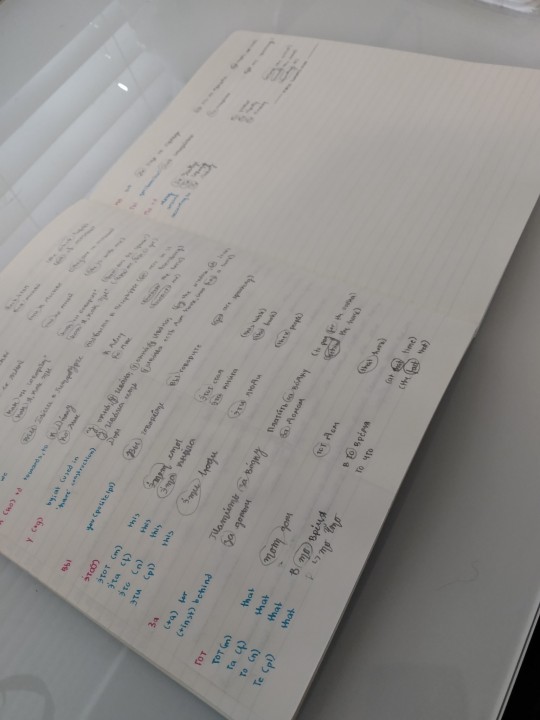
forgive my inactivity, i forgot my password lmao
#studyblr#study notes#studyspo#langblog#langblr#language#language notes#high school#language study#studystudystudy#russian notes#russian vocab#russian words
8 notes
·
View notes
Text
ɪɴᴛʀᴏᴅᴜᴄᴛɪᴏɴ
hello! my name is anastasia, but feel free to call me annie or anne! im currently based in the states and go by she//her//they//he//him//them//their but im okay with any pronouns. a few of my favorite past times is language learning (somehow obvious from the user), writing as well as a passion for military history.
current education level - high school
ᴜsᴇʀɴᴀᴍᴇ ɪɴsᴘɪʀᴀᴛɪᴏɴ
the name was a play on words, for the name anastasia and the japanese word 秋 or fall. so i merged the two together to create akistastia.
ᴏᴛʜᴇʀ ᴀᴄᴄᴏᴜɴᴛs
i have three other tumblr accounts
- @anastastia-does-stuff
-studying not relating to languages
-general life stuff//updates
-@cyanide-does-art
-art account
5 notes
·
View notes
Text

🇯🇵𝐣𝐚𝐩𝐚𝐧𝐞𝐬𝐞
i finally got the motivation to study japanese again so that's always nice. this article was about the オボンンサエライ which is a fascinating non-profit organization that restores 寄せ書きの日の丸 (yosegaki no hinomaru) i unfortunately do not know the english translation but they're essentially articles left by deceased japanese soldiers to the bereaved families.
the article is on satori reader if you're curious
#studyblr#langblog#langblr#studyspo#study notes#language#language notes#high school#language study#japanese#japanese notes#language learning#languages#japanese language#world war ii#japanese culture
22 notes
·
View notes
Text
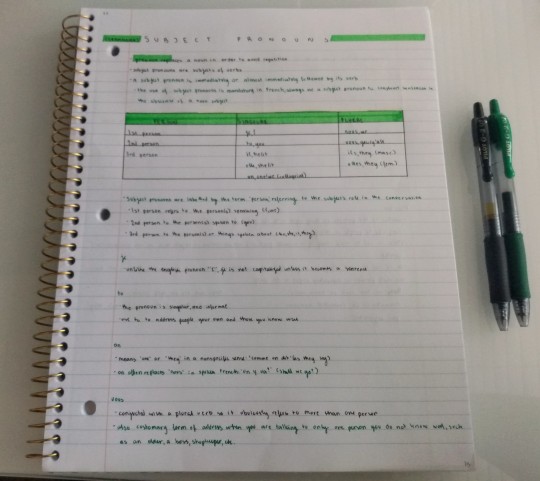
so i originally wasn't planning on learning french, but my school made an error and gave me french instead but it's not particularly upset about it.
#langblog#langblr#language#language notes#studyblr#language study#study notes#studyspo#french#french studyblr#french notes#high school#language classes
20 notes
·
View notes
Text
HELLO EVERYONE!!!
Hope you’re having a wonderful day ☺️.
I’m looking for active langblrs specifically for the following languages:
Norwegian (though I think I follow most of them 💖).
Polish (this is a tough one).
Russian.
German.
I’d appreciate if you reblog this post so I can follow you.
Thank you so much!
60 notes
·
View notes
Photo
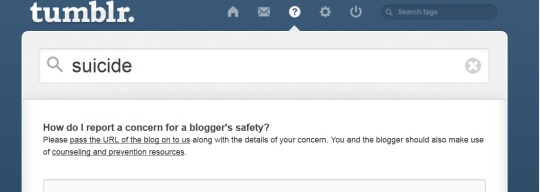
I’ve seen a lot of posts on my dash tonight about users who are threatening suicide, with other Tumblr members posting in effort to try to get ahold of them. I think you all should see this:
IF THERE IS EVER A TUMBLR USER WHO HAS POSTED A GOOD-BYE MESSAGE, SUICIDE NOTE, VIDEO, OR ANYTHING OF THE SORT, PLEASE FOLLOW THIS POST.
1. Scroll to the top of your dashboard.
2. See the circular question mark icon at the top? It’s the third one over from your home symbol. Click on that, and a screen similar to the one in the picture will come up.
3. Where you can type in questions, the box with the magnifying glass at the top, type in the word “suicide.”
4. Click on the first link that shows up. It should say, “Pass the URL of the blog on to us.”
5. Type in the user’s URL and tell Tumblr admin that the user is contemplating suicide and has posted a message indicating that they are going through with it or will be attempting. Hit send! Tumblr administration will perform a number of actions to contact the user and take the necessary steps to prevent the suicide.
TUMBLR: THIS COULD SAVE A USER’S LIFE. PLEASE DO NOT IGNORE SUICIDE THREATS.
Reblog this to keep other users aware. Suicide isn’t a joke, and neither is someone’s life. If you didn’t know this, someone else may not, either. Pass it on.
2M notes
·
View notes
Text

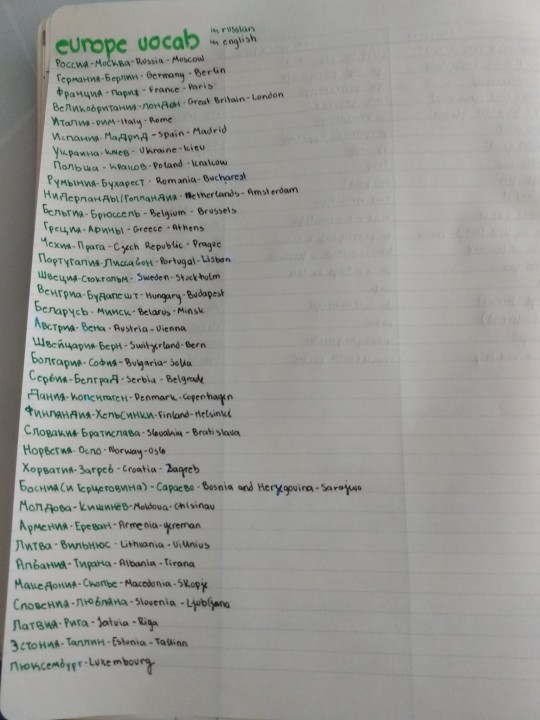
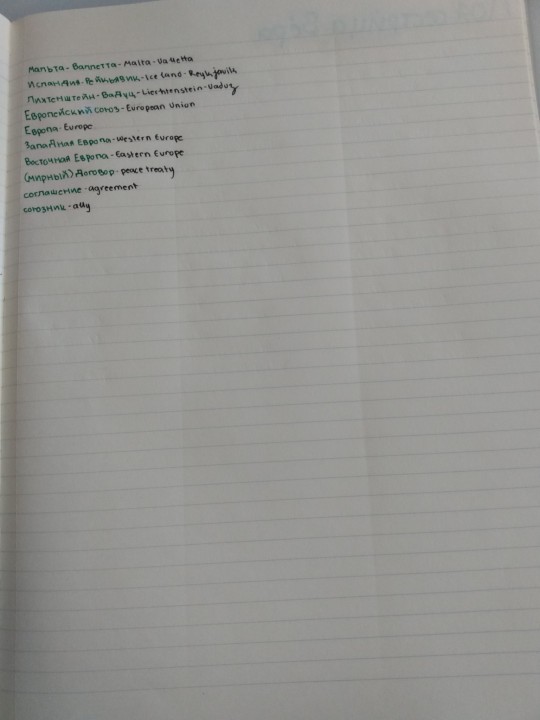
these are about 70+ european countries and their capitals, written in cryllic as well as english
green-russian/cryllic
black- english
the list is from @polyglotfantasy
#language study#langblog#langblr#language notes#language#studyblr#study notes#studyinspo#study aesthetic#studystudystudy#studyspo#russian notes
15 notes
·
View notes
Text

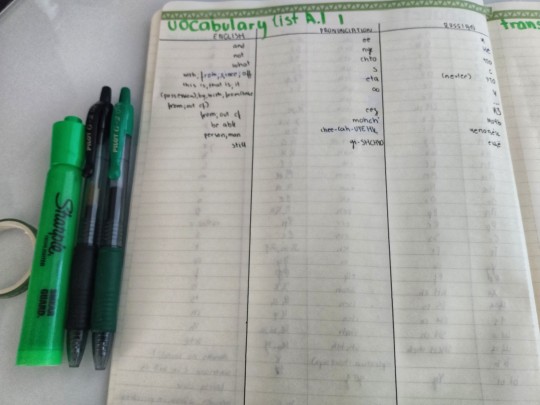
wow, here's my first post here but here are my russian notes. i post more on my instagram so check that out if you want- @akistastia.studies
2 notes
·
View notes